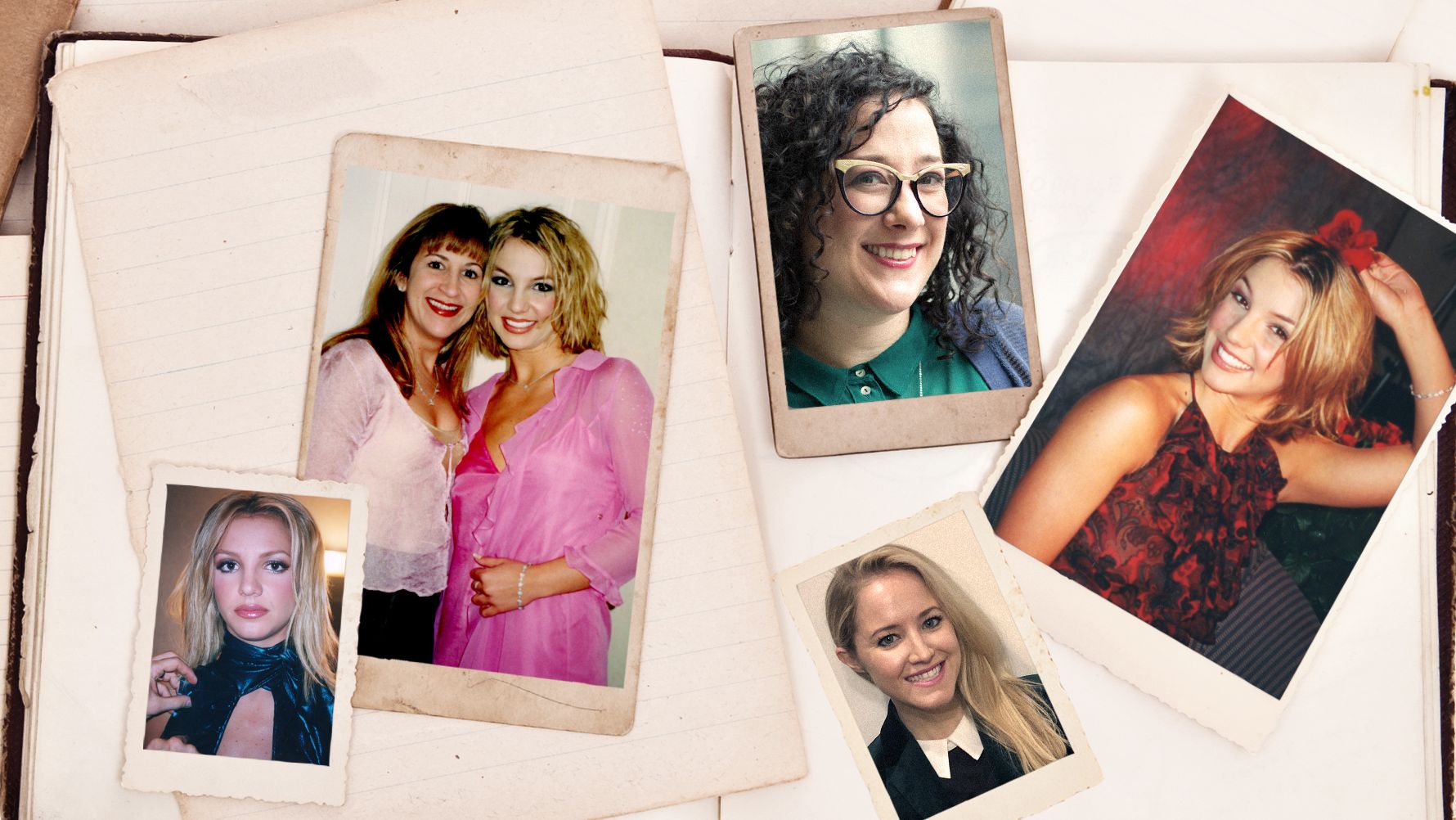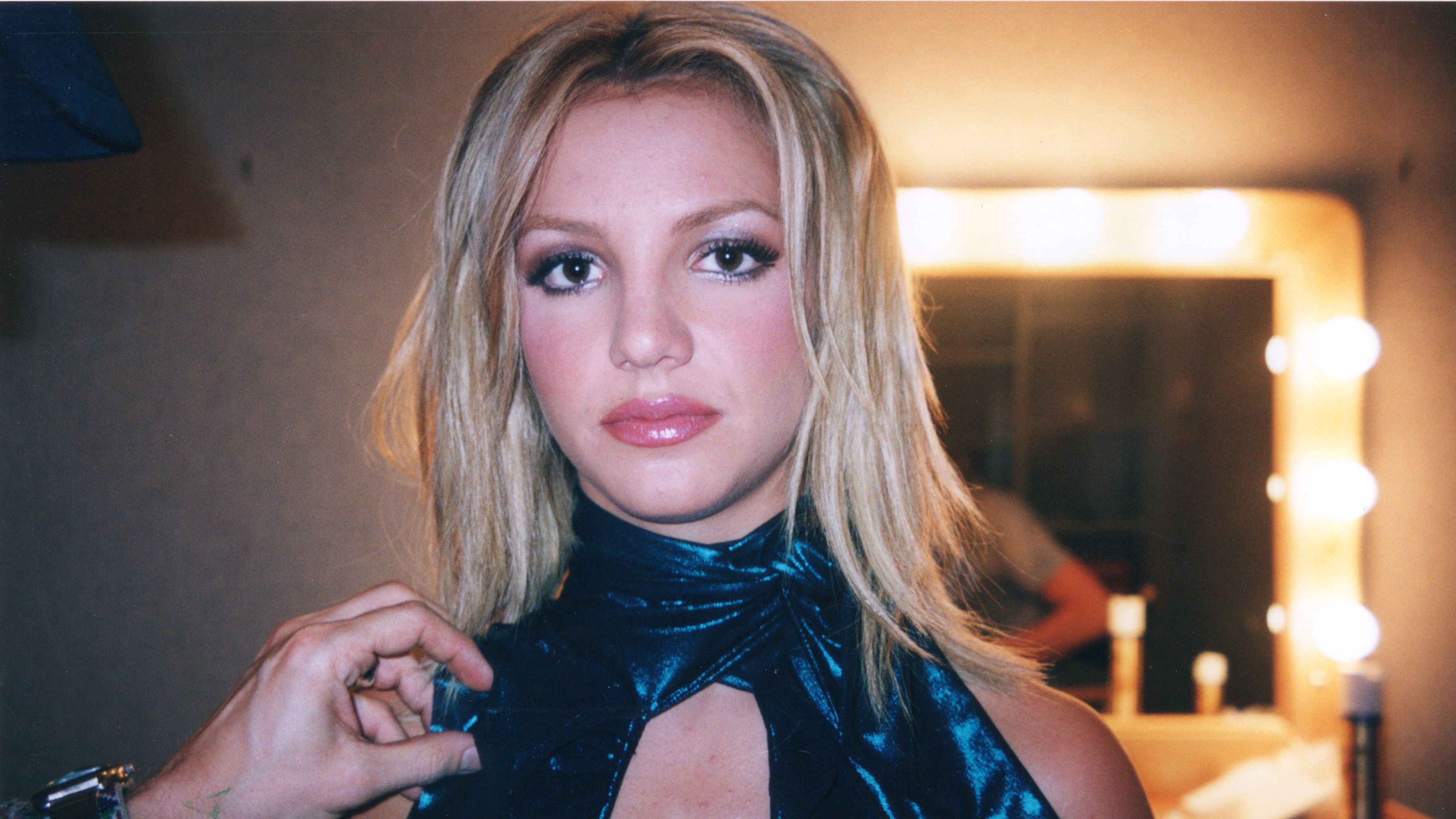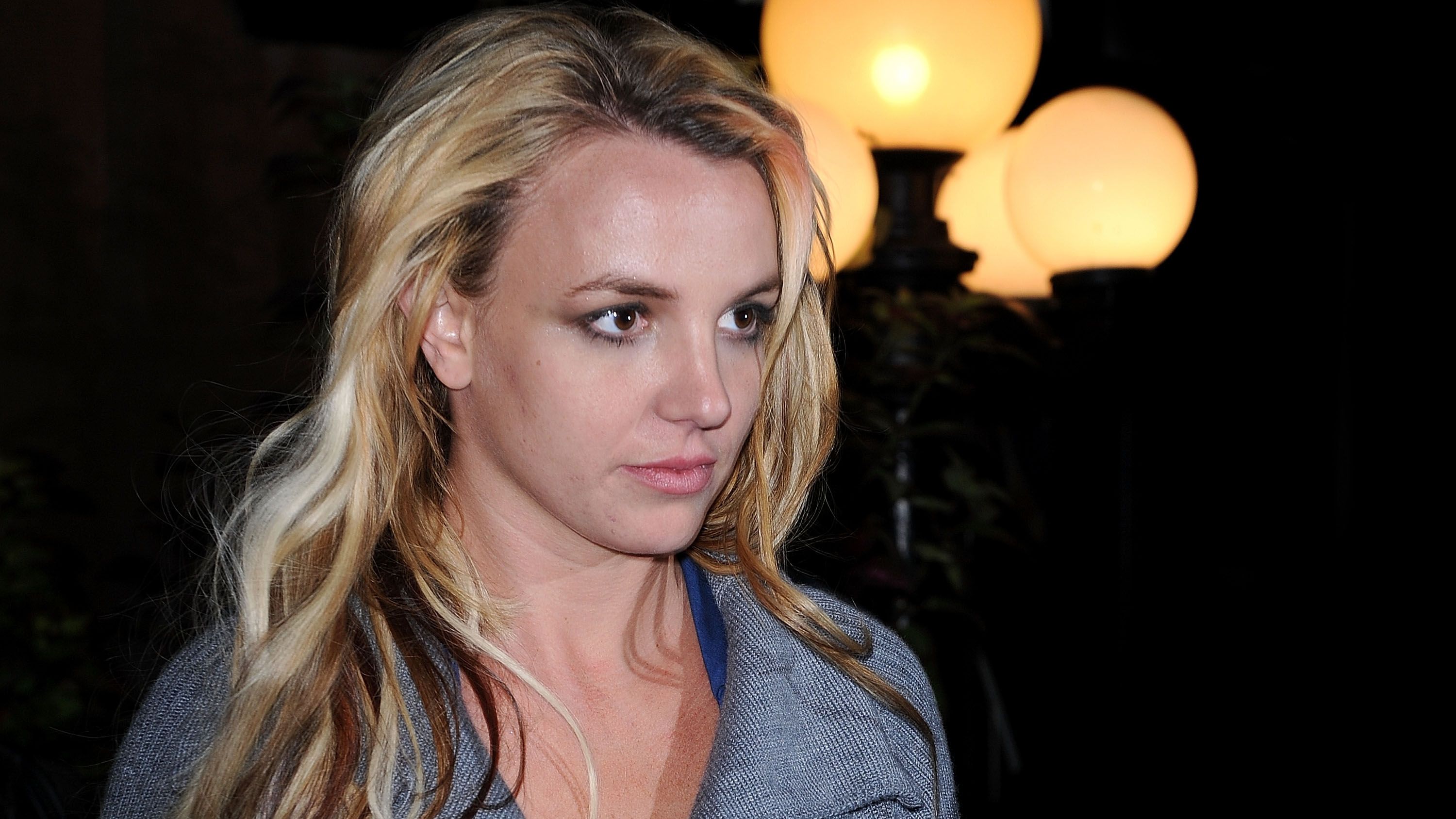'Framing Britney Spears' Filmmakers on Retelling Britney's Story From a "Female Perspective"
Samantha Stark and Liz Day break down why having an all-female film crew was key.


For more than a decade, a movement dubbed #FreeBritney has been growing. Its adherents purport to be concerned fans of the now 39-year-old pop icon Britney Spears, who has lived under a court-sanctioned conservatorship since 2008—which has left her father, Jamie Spears, largely in control of the fortune she earned from years spent on stage. (In November, a financial fiduciary was appointed co-conservator, at Spears’s request.) On February 5, the #FreeBritney movement went from the margins to the mainstream with the premiere of Framing Britney Spears, a documentary that debuted on Hulu and was produced by the New York Times.
Made by a crew of mainly female filmmakers, led by director Samantha Stark and Times senior story editor Liz Day, the documentary charts Spears’s rise to and through fame. It tracks her headline-grabbing 2002 breakup with fellow pop star Justin Timberlake and the misogynistic media coverage that ensued, along with her legal battles of the past dozen years and the movement fans started in its wake.
Stark and Day (who reports on-camera in the documentary), spoke with Marie Claire about why this was an important story for women to tell, how they went about doing so without Spears’s involvement, and what they think of viewers’ ensuing backlash against Timberlake.
Marie Claire: How did the idea for this film originate?
Liz Day: I have long wanted to see a documentary [on Britney], because I felt a nostalgic connection to her—we’re around the same age, and I remember seeing her as America’s golden girl when I was in high school. I also remember seeing her very public struggles when I was in my 20s, and always felt a little bit guilty and complicit in laughing along at jokes at Britney’s expense during that time period.
So I’ve long been fascinated with her storyline and the contradiction that the conservatorship presents. [She] is a person who is...both a seemingly very successful multimillionaire pop star, but then at the same time a very potentially ill or at-risk, vulnerable person who needs this intense layer of protection that a conservatorship provides. [There are] questions that raises: Are those two things both true? Shouldn’t only one of those things be true? And then, lastly, [I was] inspired by a lot of the [recent] cultural reckonings around figures like [former White House intern] Monica Lewinsky or [figure skater] Tonya Harding—different projects [that] go back and revisit those people who were scorned or mocked in the past to see what it reveals about America and the public and the media.
MC: Why do you think it was important for women to tell this story now?
Get exclusive access to fashion and beauty trends, hot-off-the-press celebrity news, and more.
Samantha Stark: As we were researching for the film, it was hard to find coverage that was not written by men. And it was hard to find people to interview, at first, who weren’t men because so many of the usual suspects were men. Since we wanted to do this retelling, it felt like, ‘We need a female perspective on this; it’s ridiculous that it hasn’t happened.’ No matter who we interviewed, I think having an all-female crew signaled to them that we were doing something different, and they acted differently because it’s so rare to be able to have an all-female film crew. It made people almost want to justify to us that they understand that Britney had been seen so much through this male gaze and that we were not doing that. I think that’s why a lot of people agreed [to participate]

Spears, in 2000, behind the scenes of her music video for "Lucky” music video. The moment was captured by Spears’s assistant and friend Felicia Culotta, who was interviewed for the NYT documentary.
MC: What did your reporting show, if anything, about how women failed Britney Spears in the past? I thought, for example, the 2003 interview with Diane Sawyer which you included in the doc, offered a really powerful example of that. [In it, Sawyer repeated claims that Spears was a bad example for kids and interrogated her about what she did to allegedly cause her relationship with Timberlake to end.]
SS: I think that it was primarily men. But I think the narrative of setting up women against each other is old. Everybody who was interviewing Britney at that time seemed to have a similar perspective on her, from what we saw, or seemed to think it was okay to ask her those questions [about her sexuality and relationships].
MC: How did you go about trying to tell a story that was as true as possible to Britney’s experiences and feelings given that—as you note at the end of the film—it was unclear whether Britney received your inquiries about participating and many members of her inner circle refused to be interviewed?
LD: On the reporting side, we were cognizant of how much people assume they know about Britney. When you actually dig into it, it’s not reported well. [For example,] it’s a tabloid report that’s citing an anonymous source and nothing is actually on-the-record. We were careful to make sure we understood that and didn’t just simply make the same assumptions or repeat the same things that everyone thinks are true about Britney but aren’t or aren’t necessarily known. We made a lot of effort to reach Britney. And there are a lot of people out there who claim to speak for her, and we just tried to tell the story honestly about what we were not able to find out...and just lay that out there very clearly for people to try to understand.
SS: Everyone wants to think they know everything about Britney Spears, for some reason—you can ask anybody, and they’ll tell you what [they think] is inside her head. The particular challenge of this was trying to make a story where no one guessed what was inside Britney’s head.
MC: One of the things that struck me about this film is that, unlike the posthumous documentaries that have been done in recent years on Amy Winehouse and Whitney Houston, for example, this film shows a struggle that’s ongoing. Britney is still living through this. Did you feel a sense of urgency to get this out into the world for that reason?
SS: When we first started the film, we were going after Liz’s original pitch: to reassess the media and correct misinformation about Britney. And as we were filming, these court documents started dropping that indicated that Britney wanted her father’s role to change in the conservatorship. And then that she wanted him removed from the conservatorship. And we had not seen public court records of Britney saying anything to the extent of wanting to change the conservatorship until then, so it was this huge mind-blowing thing when all these court records started coming out [last fall]. So then we definitely wanted to report as much as possible, to get it out there, since this is unfolding in the court right now.
Everyone wants to think they know everything about Britney Spears... The particular challenge of this was trying to make a story where no one guessed what was inside Britney’s head.
MC: What have you made of the reactions to the film so far?
SS: It’s been really surprising and heartening to see how many people are really understanding what we were trying to say [about misogyny] by showing all these old media clips.
LD: I totally agree with that. We were always fond of what those moments revealed, but we’re really surprised to see how much that translated on-screen and resonated with viewers. And it’s been quite awesome to watch even celebrities on social media share their outrage or similar experiences they shared, back in the ‘90s, when they were being interviewed by similar hosts.
SS: One of the goals was to examine our own complicity in this. Something that was so moving to me that happened was #WeAreSorryBritney, where people were apologizing to her for their complicity in consuming or believing the media. That moved me to tears to see that.
MC: Do you have any thoughts on viewers’ responses to Justin Timberlake? Many have said on social media they feel like the doc showed how he was also complicit in perpetuating misogynistic narratives about Britney following their breakup [by discussing their sex life in a radio interview and playing a song called “Horrible Woman” in an interview with Barbara Walters].
SS: Everyone keeps asking if we asked Justin for comment, and I think we did the same as we did with a lot of the archival: we just let it play and let you watch it through the lens of 2021... His music video [for "Cry Me a River"] was where he was essentially stalking a Britney look-a-like and watching her take a shower from the closet. I actually asked every single person I interviewed to describe that music video and no one remembered that. Everyone said, "Oh, doesn’t Britney cheat on Justin in that music video?" It’s the opposite. So I think it is time to look at that again.
MC: What did you think of the first Instagram Britney posted following the premiere of the doc, on Monday?
SS: At the end, she says, "I like sharing." I loved it. But I have nothing to say about it. I think everyone can take away what they want from it.
RELATED STORIES


Julianne McShane is a freelance journalist reporting and writing through the lens of gender. Her work has been published by outlets including the Lily at the Washington Post, NBC News, the New York Times, and the Guardian.
